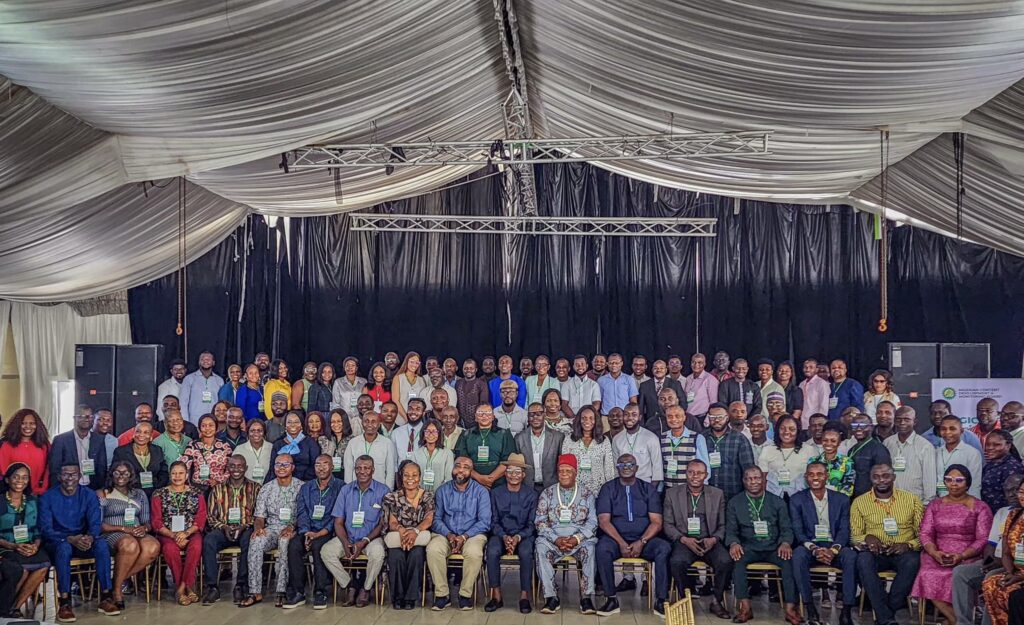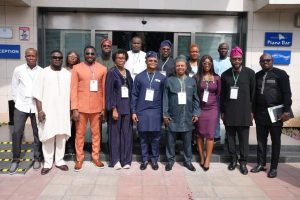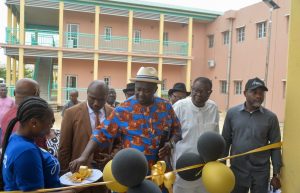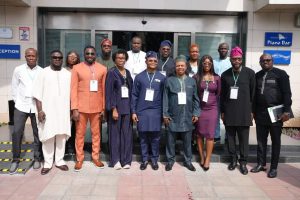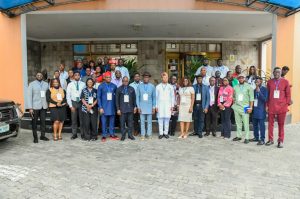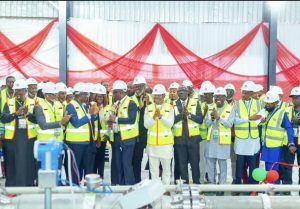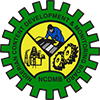NCDMB, Stakeholder Engagements Intensify as Sensitisation Workshop Moves to Port Harcourt
The Nigerian Content Development and Monitoring Board (NCDMB) on Monday in Port Harcourt, Rivers State, hosted a sensitisation workshop on its Nigeria Oil and Gas Industry Content Joint Qualification System (NOGIC JQS) Portal for critical stakeholders in the oil and gas industry. It was the second lap of a three-location event which began in Lagos on 23 October.
Created by the Board in line with Section 55 of the Nigeria Oil and Gas Industry Content Development (NOGICD) Act, 2010, the NOGIC JQS serves as “an industry databank of available capabilities” to be used as sole system for “Verification of contractors’ capacities and capabilities,” “Database for national skills development pool,” and “Ranking and categorization of oil service companies based on capabilities and Nigerian Content,” among other things.
The workshop, attended by over 170 representatives of service companies in the upstream, midstream and downstream segments of the industry as well as Oil and Gas Trainers Association of Nigeria (OGTAN), seeks to create awareness, introduce stakeholders to the enhanced NOGIC JQS Portal and provide a forum for overview of NOGIC JQS workflow processes, such as Expatriate Quota Management, Nigerian Content Equipment Certificate (NCEC), Marine Vessel and Rig Categorisation, and the importance of complying with local content Practice.
In a keynote address, the Executive Secretary of the NCDMB, Engr. Felix Omatsola Ogbe, represented by the General Manager, Capacity Building, Mr. Timbiri Augustine, said the initiative is anchored in the Board’s dedication to involving stakeholders in the execution of its 10-Year Strategic Road Map aimed at achieving 70 per cent Nigerian Content by 2027.
He commended stakeholders for their continuous support and willingness to comply with the provisions of the NOGICD Act which, as he noted, has significantly aided the Board’s effectiveness in service delivery and sustained leading position as the Number One MDA (first among ministries, departments and agencies) in the country for three consecutive years.
He pointed out that “The workshop also offers an opportunity for participants to appreciate the risk associated with non-compliance with any provision of the NOGICD Act,” reiterating that the Board has a well-coordinated internal mechanism to withhold approvals such as EQ (Expatriate Quota) application on account of non-compliance with NCDF (Nigerian Content Development Fund) remittance and other Nigerian Content regulations.
Looking ahead, he assured that the NCDMB intends “to leverage the NOGIC JQS to deepen collaboration with stakeholders” through “deployment of Application Programming Interface (API) for data exchange and information sharing on EQ approvals, marine vessel, rig records, etc. among other MDAs,” “Go-Live of the e-marketplace,” to further expand the frontiers of business opportunities and deepen transparency in procurement of goods and services in the industry.”
Key presentations by staff of the Board on Day 1 included “NOGIC JQS Processes” by Engr. Victor Babarinde Olumuyiwa, “Applying for Temporary Work Permit” (Dr Ayebatonye Epemu), “Expatriate Quota Requirements” (Mr. Richard Adeola), “Expatriate Quota Application (Online Process)” by Engr. Chukwudi Aniagudo, “Exchange Programme Application” (Ismail Tahir Mamman), and “Renewal of Expatriate Quota” (Ebipre Fred Bouboi).
On “NOGIC JQS Processes,” participants were given guidance on individual management, service companies management, operators management, marine vessel categorization, certificate of registration, Nigerian Content Equipment Certificate (NCEC) and expatriate quota management.
Registration on the portal, according to the presenter, is beneficial for a number of reasons: it reduces travel and turnaround time, fulfils a major requirement for expatriate quota and Nigerian Content Equipment Certificate, fosters better institutional collaboration, serves as a resource for engaging skilled workers and for training opportunities, as well as a platform for business promotion.
On Temporary Work Permit and Expatriate Quota, participants were guided on the appropriate procedures, and on the differences between the two: whereas the former is required for short-term projects, not exceeding three months, and for jobs such as installation and repair of facilities as well as training, the latter is for much-wider scopes of operations, and with durations not exceeding two years. Approval is project-based.
A temporary work permit could be obtained from the NCDMB within 24 hours if an application is accompanied with required supporting documents. These include an application letter to the Executive Secretary, a signed evidence of contract relating to the project being executed, indication of location of project, biodata page of the expatriate, and Nigerian Upstream Petroleum Regulatory Authority Permit. Official e-mail notification of approval is promptly sent to the company and the Nigeria Immigration Service.
For Expatriate Quota, an application letter has to be sent to the Executive Secretary stating the position(s) to be filled by the expatriate, total expatriate and Nigerian staff list completely filled out and uploaded on the NOGIC JQS portal, employment commitments, advertisements in the media and NOGIC JQS for expatriate quota positions. Organogram of the company showing placements of staff (expatriate and Nigerian), expatriate quota forms completely filled out, all past and current Ministry of Interior (MoI) approval letters, and current project being carried out by the company. The Workshop continues today in Port Harcourt at the Golden Tulip Hotel, 31 Stadium Road, Port Harcourt, while the 3rd and last lap takes place in Warri, Delta State, on 31st October and 1st November.
Discover more from Nigerian Content Development & Monitoring Board
Subscribe to get the latest posts sent to your email.
